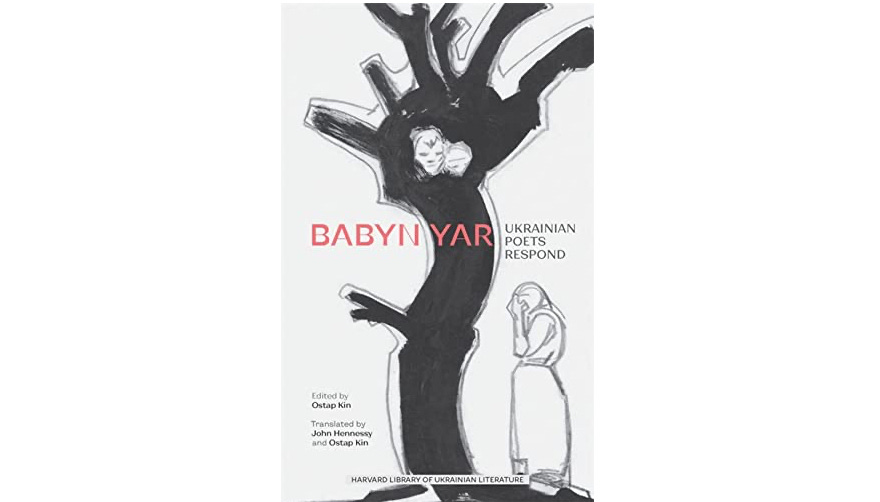Harvard’s Ukrainian Research Institute recently published Babyn Yar: Ukrainian Poets Respond. It is an anthology collected by translator and scholar Ostap Kin of poems addressed to the massacre of Jews by Nazi forces arriving in Kyiv in 1941. 33,771 Jews were shot at Babyn Yar, a ravine on the outskirts of the city, in the last two days of September; by the time the Soviets retook Kyiv in November of 1943, one hundred thousand more people had perished at Babyn Yar, mostly Jews. Jews accounted for a quarter of the city’s population before the Nazi’s arrived. Ostap Kin’s introduction describes the tortuous history of non-acknowledgment and at first furtive commemoration of this catastrophe in the city’s history. After the Soviets retook Kyiv in 1943 its remaining Jews were subjected to a fierce state-orchestrated anti-Semitic campaign. Only with the publication of famous but much-debated works by Yevgeny Yevtushenko and Anatoly Kuznetsov in the early 1960s did the massacre at Babyn Yar come into literary view; the site was unmarked until 1966. In 1991 a newly independent Ukraine first acknowledged the massacre of Jews at Babyn Yar; a full memorial was completed in 2021. Many of the poems collected by Kin were in the shadows, not published since their early appearance in small editions.
The anthology includes poems from Lviv poet Marianna Kiyanovska’s celebrated 2017 cycle, The Voices of Babyn Yar, which adopts the personae of different imaginary witnesses and participants. The Voices of Babyn Yar was published in English in a separately translated edition by the Ukrainian Research Institute in 2021, with an introduction by Polina Barskova, who wrote for Book Post in 2020 about the Gulag stories of Varlam Shalamov. Marianna Kiyanovska has said she was prompted to write the three hundred poems in this cycle over the course of a few weeks in 2016 by the struggle against Russian forces in eastern Ukraine, as well as the sudden death of her father. She has said she felt as though the voices of the dead were speaking through her. This year the Ukrainian Research Institute also publishes The Torture Camp on Paradise Street, a memoir of the detention of Ukrainian poet and journalist Stanislav Aseyev in a Russian FSB camp in Donetsk from 2017 to 2019. —AK
❧
From The Voices of Babyn Yar, by Marianna Kiyanovska
Translated by John Hennessy and Ostap Kin
i even managed to grow during the war
i went to second grade now i would have been
in the third my broken nose hurts
srulik punched me i would have even forgotten about it
if not for the fact that he and i
miraculously survived out of the whole class
i hid among thistle
he sat the whole night in a tree every time
he shivered i was afraid he would fall down
out of fear he was all sweaty he said soaked to the skin
he thought others survived but no one
nowhere but at his neighbor’s
he found a piece of bread on the table
he gave it to me saying he didn’t want it
because all were killed all lying in the ground
in babyn yar the earth soaked
he said with blood there are few survivors
to kill germans he has a grenade
he’s nowhere to be found for the third day
i look at the yellow arrow on the face
of my grandpa’s watch and it hasn’t worked for a while
i will die soon like him because time doesn’t wait
because during the raid everyone was taken
and i will be taken i don’t know when
Marianna Kiyanovska lives and works in Lviv, Ukraine. She is the author of many collections of poems and one collection of stories, and a translator of poetry from Polish, Lithuanian, and Belarussian into Ukrainian.
Book Post is a by-subscription book review service, advocating for reading and book culture across a fractured media landscape. We thank our paying subscribers who make our work possible, and appreciate your shares to help us grow.




It's hard to 'like' something as painful as this.